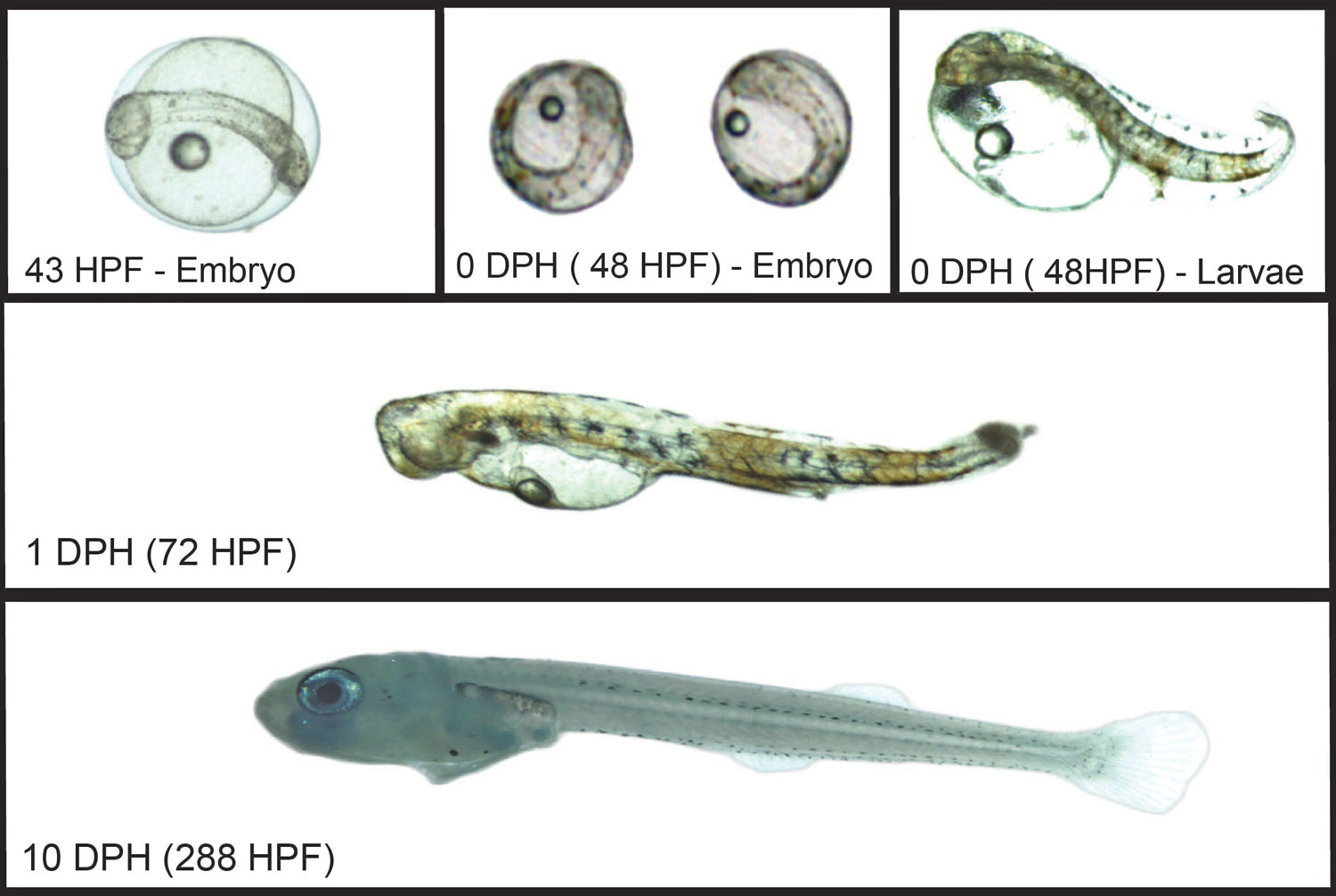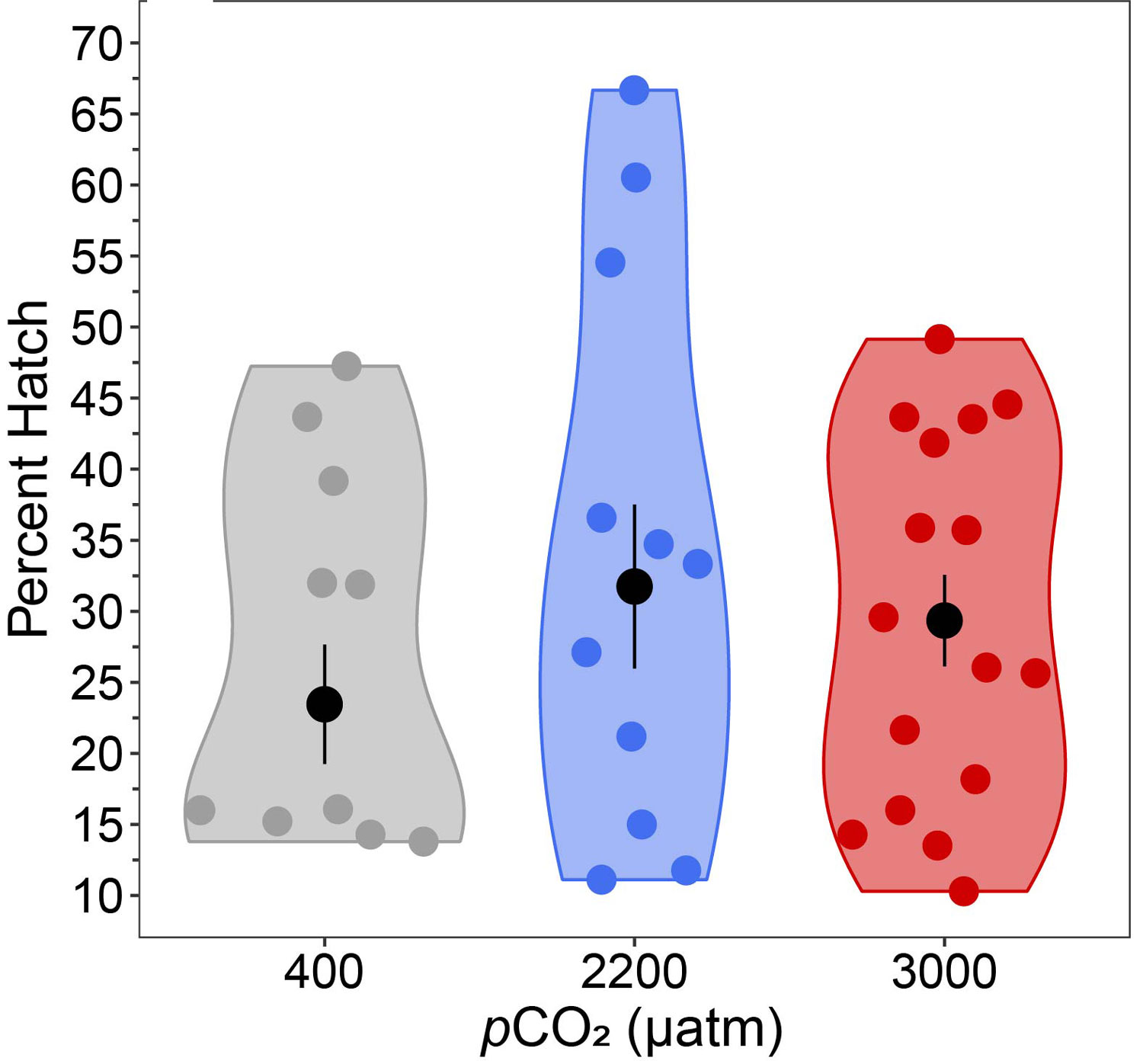12 June 2024. We are excited to share that Environmental Biology of Fishes just published our study on the CO2 sensitivity of Black Sea Bass early life stages! The experimental work was part of Max Zavell's PhD-research and required the development of new approaches for obtaining spawning adults, new rearing methods, and new techniques for quantifying hatchlings and feeding larvae.
In the end, our research extends earlier experimental work to show that Black Sea Bass embryos and larvae are surprisingly tolerant to even extreme pCO2 conditions - which means that this species is likely resistant to the direct (!) effects of ocean acidification. Scientifically, this is intriguing because it points to some form of pre-adaptation that adults confer to their offspring in a manner we just don't understand yet.
Congrats, Max, to another chapter of your thesis published!
- Zavell, M.D. and Baumann, H. (2024)
Resiliency of Black Sea Bass, Centropristis striata, early life stages to future high CO2 conditions
Environmental Biology of Fishes (published 12 June 2024)

